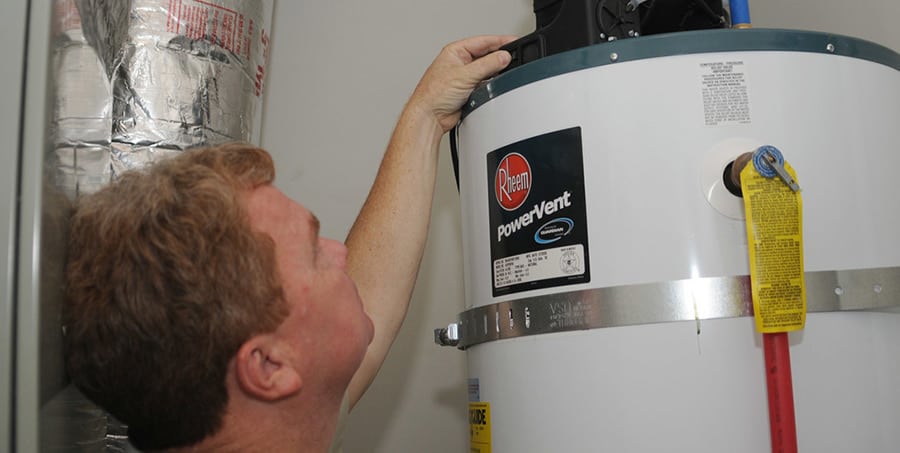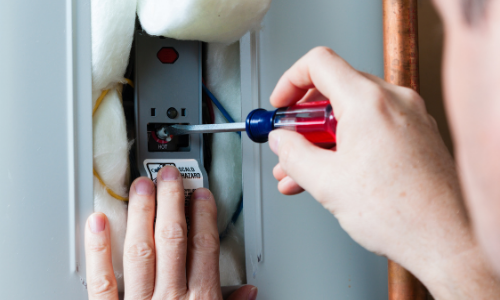Managing the Top Water Heater Crisis Situations
Managing the Top Water Heater Crisis Situations
Blog Article
We've encountered this article pertaining to The Importance of Water Heater Maintenance listed below on the web and reckoned it made good sense to relate it with you over here.

A hot water heater is one of one of the most important fundamental devices that can be found in a house. With water heaters, you don't require to experience the tension of home heating water by hand whenever there is a need to wash, wash, or the dishes. Nevertheless, there is always an opportunity that your water heater would break down similar to many mechanical devices.
It is very important to keep in mind any type of little malfunction and also tackle it swiftly before things get out of hand. The majority of times, your hot water heater begins to malfunction when there is an accumulation of debris as a result of constant usage. As a precaution, periodic flushing of your water heater is advised to avoid sediment accumulation as well as prevent useful failing.
Usual hot water heater emergencies and also just how to handle them
Leaking water heater container.
A dripping container could be an indication of deterioration. It could trigger damage to the flooring, wall surface and electrical devices around it. You might also go to risk of having your apartment swamped. In this situation, you need to shut off your hot water heater, permit it to cool, and very carefully look for the source of the issue. Sometimes, all you require to do is to tighten a few screws or pipeline connections in cases of small leakages. If this doesn't work and the leak lingers, you may require to employ the services of a service technician for an ideal replacement.
Rising and fall water temperature.
Your water heater can begin creating water of different temperatures generally ice hot or cold hot. There may be a requirement to change either the heating or the thermostat unit of your water heating system.
Inadequate hot water
It may be that the water heating unit can't sustain the warm water need for your apartment. You could upgrade your water heating unit to one with a bigger ability.
Blemished or stinky water
When this takes place, you need to know if the issue is from the water or the tank resource. If there is no amusing odor when you run cold water, then you are particular that it is your water heating unit that is defective. The stinky water can be created by corrosion or the build-up of germs or sediments in the water heating unit tank.
Verdict
Some homeowners disregard little warning and also minor faults in their hot water heater unit. This just results in further damage as well as a feasible complete malfunction of your appliance. You need to manage your hot water heater mistakes as soon as they come up to avoid more expenditures and also unnecessary emergency troubles.
With water heating systems, you don't need to go through the anxiety of home heating water by hand every time there is a need to take a bathroom, do the laundry, or the dishes. Your water heater could begin producing water of different temperatures typically ice chilly or scalding warm. It might be that the water heating unit can't support the warm water need for your apartment or condo. If there is no funny smell when you run cold water, then you are certain that it is your water heater that is damaged. The odiferous water can be triggered by rust or the build-up of germs or debris in the water heating unit storage tank.
Common Water Heater Issues and What You Should Do
What Type of Water Heater Do You Have?
Before we begin it’s first important that you identify the type of water heater you have on your property. There are two main types of water heaters out there: conventional and high efficiency.
Both of these types of products typically use either gas or electricity to heat power. There are also solar water heaters that use a thermal collector on the roof or yard to heat the water.
While these models are not as common, they can cut heating costs in half. In this article, we will focus on conventional and high efficiency.
How Do My Electric and Gas Water Heater Work?
Though they look similar, electric and gas water heaters work very differently. It’s important to know their basic function because often problems can be specific to the heating source.
In the electric model, a thermostat on the side of the machine detects the temperature of the water in the tank. When the temperature needs to rise electricity flows to a heating element suspended in the water.
Gas models also use a thermostat device — typically with a mercury sensor at the tip and an additional sensor called a thermocouple. The thermocouple detects whether the pilot light is on and controls the flow of gas.
When the thermostat drops below the appropriate level gas is released which becomes ignited by the pilot light. The flame heats the bottom of the water tank which causes hot water to rise and cold water to drop.
This natural circulation continues until the water reaches the desired temperature. Then, the thermostat triggers the gas control valve to shut off the flow of gas.
What Are the Most Common Issues and How Do You Fix Them?
https://happyhiller.com/blog/common-water-heater-issues-and-what-you-should-do/

As a passionate person who reads about Warning Signs You Need Water Heater Repairs, I was thinking sharing that piece of writing was important. If you enjoyed our post if you please don't forget to pass it around. I praise you for your time. Come back soon.
High-quality, fast plumbing repairs. Report this page